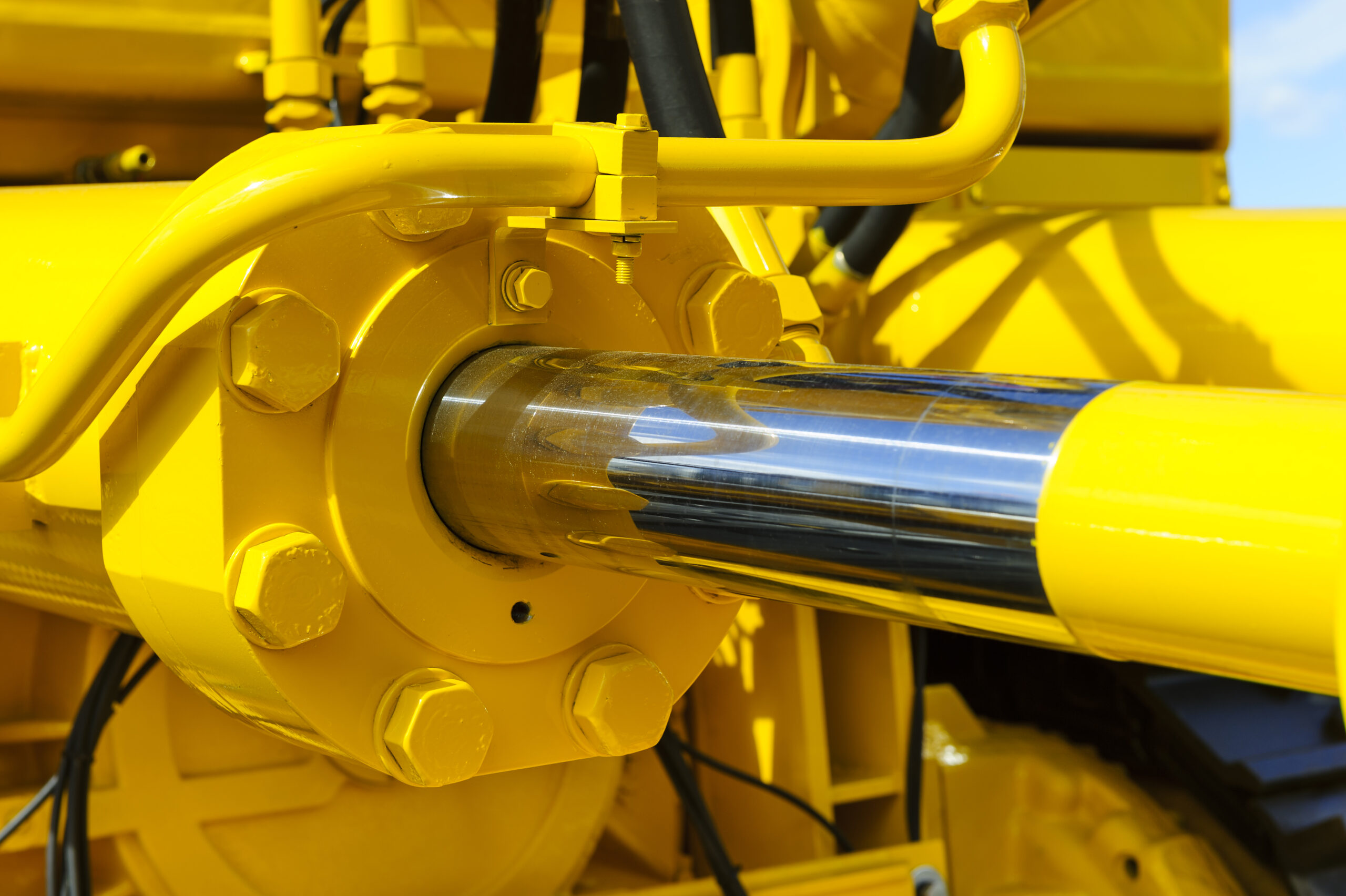
All News >> Digital Newsletters
Hydraulic System Maintenance Tips
March 22, 2022
Written By Adam Buckallew
Hydraulic systems play important roles in keeping vehicles, farming equipment, construction equipment and factories productive. The pressurized fluid in hydraulic systems provides many essential functions like reducing friction, removing heat, minimizing wear and tear and protecting the system from rust by removing debris. Hydraulic system maintenance is crucial to keeping these key machinery components up and running.
There are three main types of hydraulic system maintenance: preventive, predictive and reactive.
Preventive Maintenance
Regularly performing preventive maintenance keeps equipment from breaking down. We recommend following a preventive maintenance program or task list that includes routinely collecting fluid samples from your equipment and sending them to the MFA Oil Laboratory for oil analysis. Add the following things to your checklist to ensure your equipment’s hydraulic system remains in top shape.
- Check the hydraulic fluid levels and add more of the same brand and viscosity if needed.
- Check the return, pressure and hydraulic filter indicators and pressure gauges for readings.
- Inspect the hydraulic hoses, tubing and fittings for leaks and breaks.
- Check the system temperature.
- Listen to the pump for any unusual noise.
Predictive Maintenance
Predictive maintenance tracks your equipment’s performance and health in real-time. This approach to maintenance can help you avoid costly, unexpected breakdowns and offers you the opportunity to plan maintenance around your operation’s schedule.
Predictive maintenance sends alerts when a recommended threshold triggers through remote monitoring of real-time machinery information. Though there are hard costs to installing the telematics devices needed for predictive maintenance, the access to real-time data allows you opportunities to better manage your equipment and its maintenance.
Reactive Maintenance
Neglecting regular maintenance can leave your equipment more susceptible to unexpected breakdowns. If you fail to catch a problem before it arises, you must perform reactive maintenance. Emergency repairs can be expensive, and that’s not counting losses to your productivity. Worse yet, if the damage is severe, you could be looking at replacement costs that your warranty or insurance may not cover.
Waiting until your machinery breaks down before you respond will result in more equipment downtime, more expense for your operation and should be a last resort.
Hydraulic System Maintenance Best Management Practices
The most common problems that cause hydraulic fluid to degrade are system contamination, overheating and debris. Consider the following recommendations:
- Prevent contaminants from entering the system. Studies have shown that lubricant contamination is most often traceable to sources from outside the equipment. Keep the reservoir cover, drain lines and breather openings clean to avoid system contamination.
- Replace the dust cap or OEM breather cap with a desiccant breather. Most gearboxes, pumps, and reservoirs must breathe, which can pull harmful dirt and moisture into the system. Desiccant breathers are designed to extend the life of the lubricant and your equipment by capturing and removing harmful particulates and water.
- Check filters regularly. Desiccant breathers contain layered filter elements that change colors when saturated with water. Check for any color change during your weekly preventative maintenance and replace the desiccant breather as needed to ensure your lubricant stays clean.
- Collect fluid samples regularly and send them for analysis. Periodic testing of your hydraulic fluid can reveal the presence of metal particles and water. Fluid analysis can shed light on filter performance, wear and other potential issues. Regular testing helps you build a history of your equipment that you can use to diagnose problems before they result in breakdowns.
The MFA Oil Laboratory provides fuel and oil analysis services. Our highly trained staff tests and evaluates fluid samples to help you minimize costly downtime and repairs, extend oil drain intervals and get the maximum life out of your equipment. Fluid sample collection kits are available at your local MFA Oil bulk fuel plant.
If you have any questions about lab services or the right lubricant for your equipment, call (800) MFA-LUBE or email [email protected].


